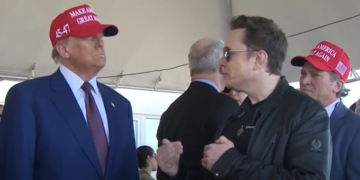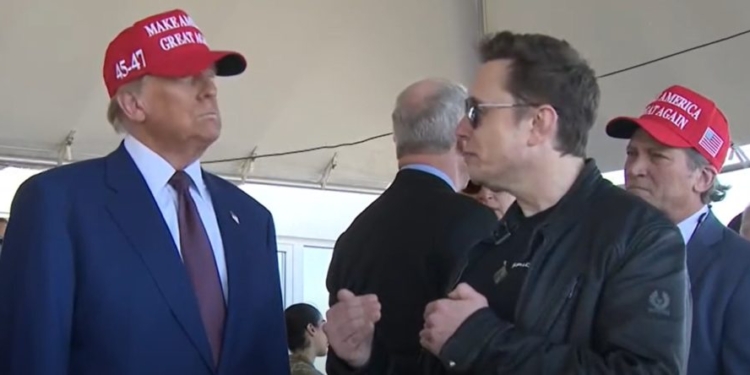America has long prided itself on being the land of opportunity — a place where any individual, no matter their background, can roll up their sleeves and build a life of prosperity. Yet, as our nation grapples with maintaining its economic edge and preparing our workforce for the challenges of tomorrow, the discussion around H-1B visas has once again taken center stage.
However, this time the mask is coming off and the monster that is the current, broken H-1B system is finally being exposed for what it is: cheap labor that exploits foreign workers and discrimination against U.S. citizens.
To be clear, skilled immigration has long played a vital role in propelling the country forward in areas like technology, medicine and engineering. H-1B visas in particular have allowed businesses to recruit specialized talent from around the globe, giving an immediate boost to innovation in Silicon Valley and beyond.
The problem is that the current H-1B system has been manipulated and transformed into a way to replace American workers who have standard employee rights with cheaper foreign labor that can be exploited and leveraged to work tirelessly with little recourse. H-1B mills spin out international labor at scale for large corporations, especially in the technology sector, and it has nothing to do with hiring the best and the brightest.
Earlier this year Cognizant, a professional services company that places workers at technology companies was found to have favored Indian H-1B workers over U.S. employees. Meta, one of the world’s largest technology companies, has also been forced to face a lawsuit claiming it prefers foreign workers over U.S. citizens.
The reason technology companies prefer foreign labor is simple: leverage. They can pay a foreign worker on an H-1B less than a U.S. citizen and they can apply extreme pressure for the worker to work long hours with little to no recourse. The H-1B worker can’t just quit because they will lose their H-1B visa unless they find another employer willing to sponsor them quickly. This might sound simple but it’s not. The H-1B worker is blacklisted from the mill system if they quit. Most small and mid-size businesses do not have the same H-1B pipeline that these larger corporations do so they cannot hire an H-1B worker as easily, severely limiting the options for the H-1B worker to get rehired.
As a result, the H-1B workers stay put at the corporations that hires them, work more hours for less wages and never complain. In one sense, it’s an employer’s dream; an endless supply of indentured servants who allow owners to dramatically cut costs, grow their margins and win in the marketplace. But that is exactly what is wrong.
The current H-1B argument has brought in a lot of voices from both sides of the aisle. Some claim that H-1B visas are required because it will allow the best and the brightest to rise to the top. However, as discussed above, the current H-1B system is preventing this. The current system has led to more discrimination in hiring, not less. U.S. citizens are pre-emptively rejected simply because they are U.S. citizens.
While companies clamor for more foreign visas, we risk ignoring young people growing up right here who could become tomorrow’s scientists, engineers, entrepreneurs and teachers — if only we would invest in them.
Such investment in American youth would yield substantial returns. Every dollar spent on improving the K-12 STEM curriculum, enhancing teacher training and enriching educational technology directly strengthens the pipeline of future innovators. Beyond equipping students with the basics in math and science, early exposure to coding, robotics and hands-on laboratory work can inspire children to pursue careers that will sustain our country’s leadership in cutting-edge industries.
By focusing on our own youth, we strengthen the domestic job market, reduce our reliance on importing talent, and ensure that prosperity is shared more evenly across the nation.
Further, we must not overlook non-STEM areas. Skilled trades, small-business entrepreneurship and the liberal arts contribute mightily to the nation’s cultural and economic tapestry. By broadening our investment to include vocational training and comprehensive career counseling, we cultivate a workforce that can adapt to a range of industries — from welding to web design, from nursing to game development. A well-rounded approach ensures every American child, regardless of their chosen path, has the chance to acquire job-ready skills.
Now is the moment for America to reform the broken H-1B system and refocus its gaze inward — toward the classrooms, neighborhoods and communities where tomorrow’s workforce is taking shape. By committing the resources, time and creativity to invest in our youth, we reaffirm our belief in the American dream and safeguard the nation’s future. Now is our moment — let’s seize it.
Dr. Isaiah Hankel Ph.D is a 3X Best-Selling Author and the CEO of the Cheeky Scientist.
The views and opinions expressed in this commentary are those of the author and do not reflect the official position of the Daily Caller News Foundation.
All content created by the Daily Caller News Foundation, an independent and nonpartisan newswire service, is available without charge to any legitimate news publisher that can provide a large audience. All republished articles must include our logo, our reporter’s byline and their DCNF affiliation. For any questions about our guidelines or partnering with us, please contact [email protected].



























 Continue with Google
Continue with Google